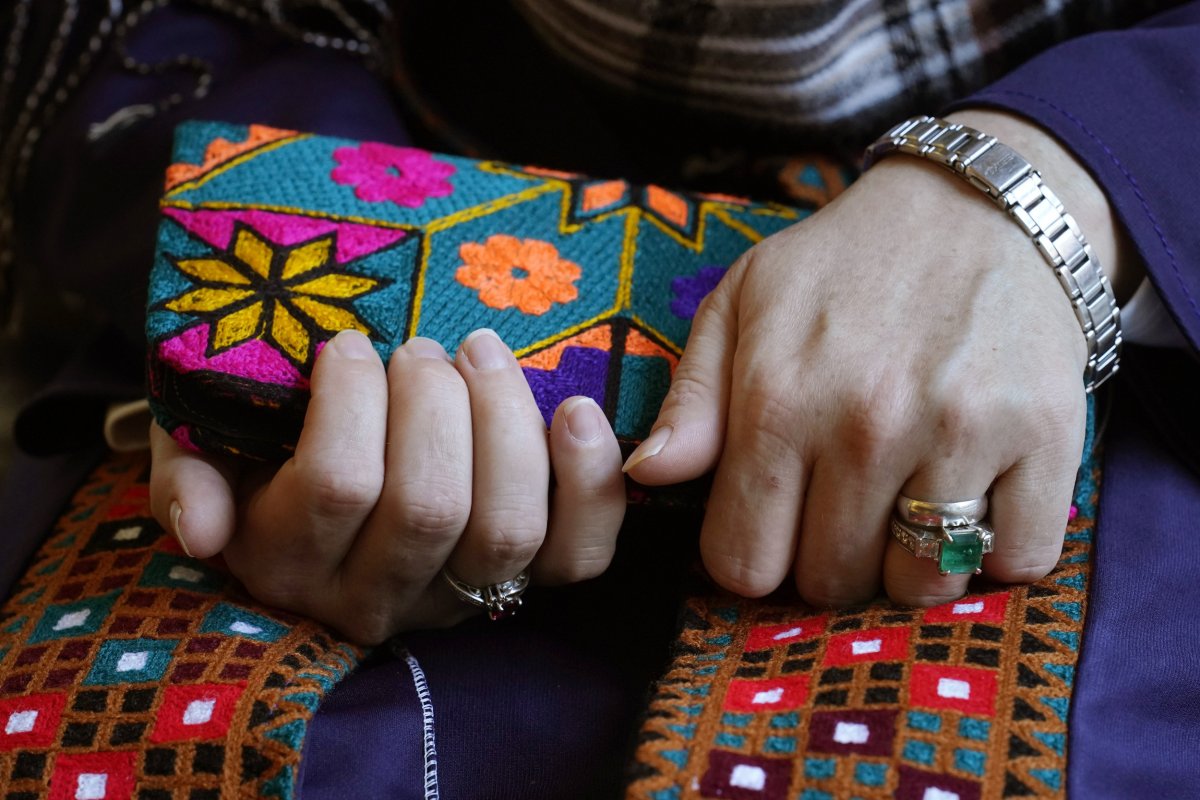More than 28,000 Afghans have applied for temporary entry into the U.S. for humanitarian reasons. With only about 100 applications approved so far, it's caused a growing backlog for immigration services and frustration among families, the Associated Press reported.
U.S. Citizenship and Immigration Services (USCIS) has struggled to keep up with the large number of applications for a rarely-used program called humanitarian parole but promises it's increasing staff to address the growing backlog.
Victoria Palmer, a USCIS spokesperson, said the agency has trained 44 new staff members to help address the application surge. As of mid-October, the agency had only six employees assigned to the program.
Afghan families in the U.S. and the immigrant groups supporting them say the slow pace of approvals threatens the safety of their loved ones who face an uncertain future.
"We're worried for their lives," says Safi, a Massachusetts resident whose family is sponsoring 21 relatives seeking humanitarian parole.
Additionally, the slow pace is frustrating because families have already paid hundreds if not thousands of dollars in processing fees, says Chiara St. Pierre, an attorney at the International Institute of New England in Lowell, Massachusetts, a refugee resettlement agency assisting Safi's family.
Each parole application has a $575 filing charge, meaning USCIS, which is primarily funded by fees, has collected nearly $11.5 million from Afghans in the last few months alone, she and other advocates complain.
For more reporting from the Associated Press, see below.

Safi, the 38-year-old U.S. permanent resident, who asked that her last name not be used for fear of retribution against her relatives, is hoping to bring over her sister, her uncle and their families. She says the families have been in hiding and their house was destroyed in a recent bombing because her uncle had been a prominent local official before the Taliban took over.
"People are desperate to get their families out," said St. Pierre, whose nonprofit has filed more than 50 parole applications for Afghan nationals. "Do we not owe a duty to the people left behind, especially when they are following our immigration laws and using the options they have?"
Of the more than 100 approved as of July 1, some are still in Afghanistan and some have made it to third countries, she said, declining to provide details. The program typically receives fewer than 2,000 requests annually from all nationalities, of which USCIS approves an average of about 500, according to Palmer.
Part of the challenge is that humanitarian parole requires an in-person interview, meaning those in Afghanistan need to travel to another county with an operating U.S. embassy or consulate after they've cleared the initial screening. U.S. officials warn it could then take months longer, and there's no guarantee parole will be granted, even after the interview.
Humanitarian parole doesn't provide a path to lawful permanent residence or confer U.S. immigration status. It's meant for foreigners who are unable to go through the asylum or other traditional visa processes, but who need to leave their country urgently.
The backlog of parole requests comes on top of the more than 73,000 Afghan refugees already evacuated from the country as part of Operations Allies Welcome, which was focused on Afghans who worked for the U.S. government as interpreters and in other jobs.
Most have arrived in the country and have been staying on military bases awaiting resettlement in communities across the country, though about 2,000 still remain overseas awaiting clearance to enter the U.S., according to Palmer.
But, advocates question some of USCIS's recent decisions for Afghan humanitarian parole, such as prioritizing applications from those already living in other countries. They say that approach is at odds with the program's purpose of helping those most at risk.
Palmer didn't directly address the critiques but said the agency, in each case, determines if there's a "distinct, well-documented reason" to approve humanitarian parole and whether other protections are available. USCIS also considers whether the person already has U.S. ties, such as a family member with legal status or prior work for the U.S. government, among other factors.
In the meantime, Afghans in the U.S. have little choice but to wait and fret.
Baktash Sharifi Baki, a green-card holder who has been living in the U.S. since 2014, was compelled to take more drastic measures as Afghanistan quickly unraveled this summer.
The Philadelphia resident, who served as an interpreter for the U.S. government, traveled back in August in the hopes of shepherding his wife, daughter, mother and godson to safety.
But the family wasn't able to board any of the final commercial flights out of Kabul. Baki has appealed to the U.S. government to allow them to board one of the charter flights that have recently resumed.
Meanwhile, a friend in Louisiana has offered to serve as the family's sponsor for a humanitarian parole application, even covering the costly fees himself.
Baki and his family are staying for now with relatives in the northern city of Mazar-e-Sharif. But, he worries his modest cash savings is dwindling just as the region's harsh winter sets in and Afghanistan's economic crisis is deepening.
"We are really facing a bad situation here," Baki said. "We need to get out."

Uncommon Knowledge
Newsweek is committed to challenging conventional wisdom and finding connections in the search for common ground.
Newsweek is committed to challenging conventional wisdom and finding connections in the search for common ground.
About the writer
To read how Newsweek uses AI as a newsroom tool, Click here.








